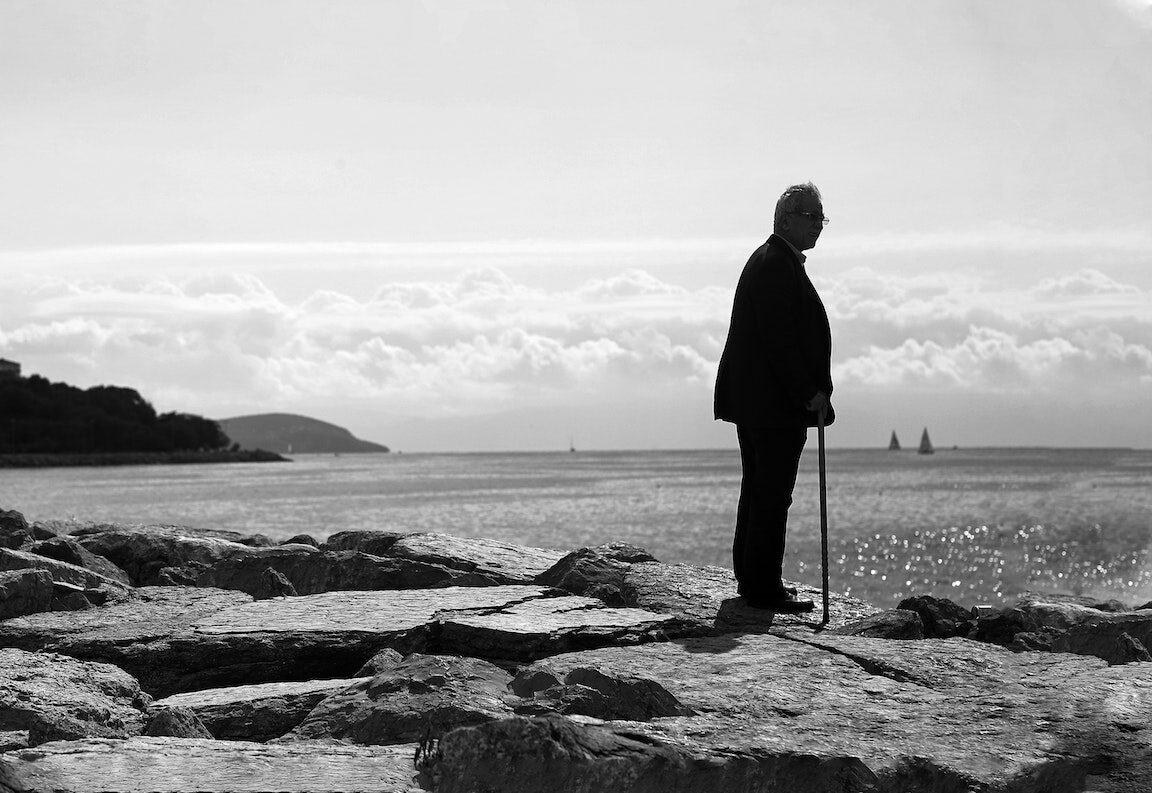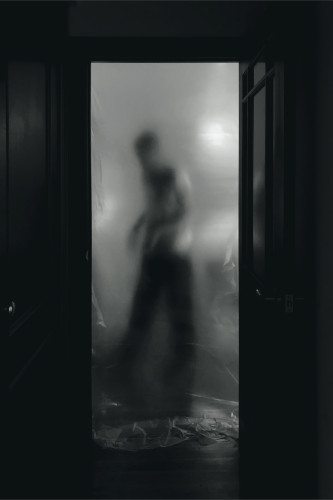Welcome to Weird Wednesday! Today we’re talking about ghosts that aren’t ghosts.
We all know what an apparition is: a ghost! And a ghost, by definition, is someone who’s died. But what about cases where people have seen ghostly figures who are very much alive?
July, 1882.
I was expecting my husband home, and shortly after the time he ought to have arrived (about 10 p.m.) I heard a cab drive up to the door, the bell ring, my husband’s voice talking with the cabman, the front door open, and his step come up the stairs. I went to the drawing-room, opened it, and to my astonishment saw no one. I could hardly believe he was not there, the whole thing was so vivid, and the street was particularly quiet at the time. About 20 minutes or so after this my husband really arrived, though nothing sounded to me more real than it did the first time. The train was late, and he had been thinking I might be anxious.
Amy C. Powys.
—Phantasms of the Living, Vol. 1
Edmund Gurney, Frank Podmore, and Frederic William Henry Myers argue in their two-book series Phantasms of the Living that apparitions of the living (sometimes called fetches) are a form of telepathic communication, made by someone in an emotional state, projecting their own image to one or more people. Most often, they are sent by someone who is near death. (When connected with death or near-death, the visions are typically called crisis apparitions: you can read a Weird Wednesday post on those here.)
February 24th, 1885
About September, 1873…I was sitting one evening, about 8.30 p.m., in the large dining-room. At the table, facing me, with their backs to the door, were seated my mother, sister, and a friend, Mrs. W. Suddenly I seemed to see my wife bustling in through the door of the back dining-room, which was in view from my position. She was in a mauve dress. I got up to meet her, though much astonished, as I believed her to be at Tenby. As I rose, my mother said, “Who is that?” not (I think) seeing anyone herself, but seeing that I did. I exclaimed, “Why, it’s Carry,” and advanced to meet her. As I advanced, figure disappeared. On inquiry, I found that my wife was spending that evening at a friend’s house, in a mauve dress, which I had most certainly never seen. I had never seen her dressed in that colour. My wife recollected that at that time she was talking with some friends about me, much regretting my absence, as there was going to be dancing, and I had promised to play for them. I had been unexpectedly detained in London. Addendum: She often appears to people; her servants have seen her several times.
Alex S Beaumont
Psychical research loves the idea of fetches because, unlike ghosts, fetches are a two-way street. You can’t verify a ghost, because you can’t talk to the dead. But a fetch can be matched to a time of death or other concrete details. (See my blog post on Peak in Darien deathbed visions for other possibly verifiable experiences.) And sometimes the apparitions are reciprocal: two people see (or hear) simultaneous visions of each other, which can also be checked.
January, 1883.
A strange experience occurred in the autumn of the year 1879. A brother of mine had been from home for 3 or 4 days, when, one afternoon, at half-past 5…I was astonished to hear my name called out very distinctly. I so clearly recognised my brother’s voice that I looked all over the house for him; but not finding him, and indeed knowing that he must be distant some 40 miles, I ended by attributing the incident to a fancied delusion, and thought no more about the matter. On my brother’s arrival home, however, on the sixth day, he remarked amongst other things that he had narrowly escaped an ugly accident. It appeared that, whilst getting out from a railway carriage, he missed his footing, and fell along the platform; by putting out his hands quickly he broke the fall, and only suffered a severe shaking. “Curiously enough,” he said, “’when I found I called out myself falling I called out your name.” This did not strike me for a moment, but on my asking him during what part of the day this happened, he gave me the time, which I found corresponded exactly with the moment I heard myself called.
Mr. R. Fryer, of Bath
—Phantasms of the Living, Vol. 2
And now for some fetching writing prompts!
- Knock, knock. Arrival apparitions, like in the first story above, are some of the most common fetches reported: someone arrives at home, vanishes, and then arrives at home for real. In the story above, the husband was worried his wife might be anxious, but there are other arrival apparitions without such a clear emotional cause. Perhaps arriving home just gives one a great feeling of pleasure and relief at being done with the day’s errands. Or you could come up with other reasons: maybe the person about to arrive has just witnessed an accident, or is fleeing an assassin. Maybe they’ve got important news to share, whether good or bad. Or maybe there’s something at home they desperately need to do: hide the loot from a recent bank robbery or bid farewell to a dying loved one. They might be so intent on arriving as soon as possible that they send a part of themselves ahead.
- The invisible man. What about a world where fetches are entirely normal? When traveling, you always send a spectral version of yourself ahead, and people use it as a five-minute notice of your real arrival at home or work. Whenever you have a fright or something wonderful happens, your loved ones get notified by your apparition. But what if there was a person who could not send fetches? Maybe it’s a known disability or just a weird quirk of their biology. How would that person feel and function?
- Witness for the prosecution. What if you could witness a crime via apparition? Say a character’s sister was in a bank, and saw a robbery take place. She was so upset she projected her fetch to her sibling at home. And let’s posit a world where fetches are not just the apparition of a person, but their surroundings as well, so the one at home is able to watch the robbery themselves, and crucially, notice some important detail that the sister missed, like a glimpse of a face behind a robber’s mask. If, in this world, witnessing via apparition is common, then the story would be accepted by the police and courts. But what if it was not— how could the witness convince the police they could recognize a face they shouldn’t have been able to see?
- Spy vs Spy. Fetches are usually thought to be mere apparitions, with no ability to interact with or even be aware of their surroundings. But what if a person’s arrival apparition could be used to get a glimpse into an unknown place? Say a character was on a battlefield, about to storm a castle. Their fetch could take a quick look around before they get there. Or perhaps a prisoner might be able to check their future cell for weak points. Crucially, it would have to be a place they were going to visit within the next few minutes, so it wouldn’t give much time to react to what they learned. Unless, of course, as the writer, you change the rules— what if fetches could precede a person by a full day? But remember, anyone in the castle or prison who saw the fetch would get advance notice of the arrival.
Thanks for spending your Weird Wednesday here— if you were really here at all!
Want to chat about the blog? Did you use one of the prompts? Hit me up on social media.
If you like ghost stories, feel free to check out my story The Train Ticket. A man holds a ticket to Hell after accidentally robbing a ghost train. You can read it in the anthology Queer Weird West Tales or listen to it on the podcast Tales to Terrify.
And stay tuned for my queer romance novel Forewarning, currently in the querying stage, where fetches are used to tell the future.
Sign up for my free monthly newsletter and never miss a blog post! Or subscribe by RSS


